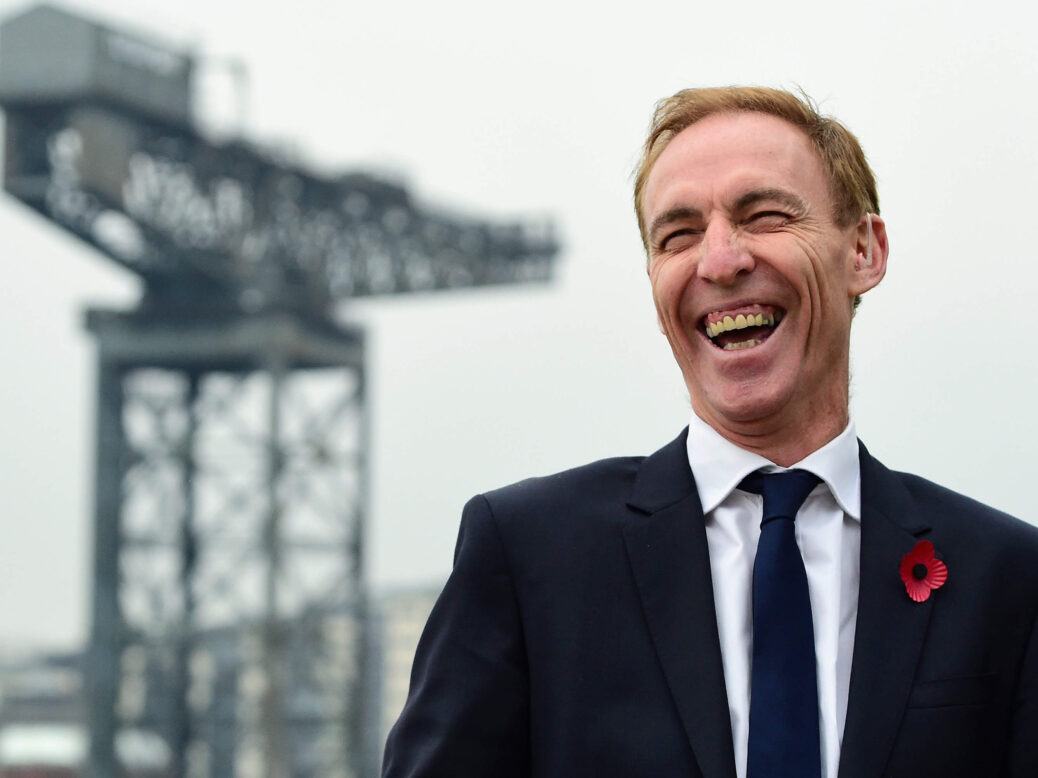
Jim Murphy, Labour MP for East Renfrewshire, has won the Scottish Labour leadership contest. Here are the full results:
Jim Murphy: 55.59 per cent
Neil Findlay: 34.99 per cent
Sarah Boyack: 9.42 per cent
Kezia Dugdale, MSP for the Lothian Region, was voted the new deputy leader, beating Katy Clark MP by 62.9 per cent to 37.1 per cent.
Murphy described it as a “remarkable honour” and the achievement of a “dream”. He said:
Today is a fulfilment of a dream for me. I’ve always dreamt of being appointed the captain of a team in the east end of Glasgow . . . Scotland is changing and so too must Scottish Labour. I’m ambitious for our party because I’m ambitious for our country . . . There can be no excuses now: we have the power, the question is do we have the purpose? . . . I understand the cries for change . . . I was born here, I live here, I will lead here. I will always put Scotland first. Nothing is beyond us if we work together. First we have to tear down those barriers that hold back so many of our fellow citizens.
He concluded his speech by saying he sees this as an opportunity to build, “the fairest nation on earth”.
The candidates had been jostling to become leader of the Labour party in Scotland since Johann Lamont resigned from the post following the Scottish independence referendum, accusing Westminster colleagues of treating the party in Scotland like a “branch office”.
The frontrunner Murphy, who has served as Secretary of State for Scotland, beat the left-winger, and predicted favourite among the union voters, Neil Findlay MSP and less high-profile backbencher Sarah Boyack MSP to the post. He is the only one of the three candidates not to currently hold a seat in Holyrood, and has a huge challenge ahead on a personal level, as well as politically.
As a former member of Ed Miliband’s frontbench and often (rather crassly) described as a “Blairite”, he will have to persuade an electorate, and a party, sick of Westminster insiders issuing instructions from on high and failing to engage with the Scottish people, that he understands their concerns. He could use his supposed “insider” status to Scottish Labour’s advantage; negotiating effectively with his contacts in Westminster should avoid the “branch office” situation Lamont so lamented when she resigned.
He was popular among No voters during the Scottish referendum campaign chiefly due to the energy and commitment displayed by his “100 towns, 100 days” tour around Scotland, standing on his trusty Irn-Bru crates to convince Scots to remain in the Union. Also, his path from Westminster to Holyrood suggests that he doesn’t see Scotland as a holding pen for someone wanting to advance their political career in London. He has confirmed that he will leave Westminster for Holyrood if he wins, and would do well to avoid “London elite” attacks from the SNP by ruling out standing again as an MP in 2015.
Politically, his great task is to heal the Scottish Labour party’s wounds, inflicted by the rise of the SNP, and a continuing loss of support from Labour’s traditional base in Scotland. Particularly worrying for Labour is the prospect of the SNP winning so many seats in the general election that it could completely scupper Labour’s chances of being in power, let alone winning a majority. As our leader this week points out, in 2010 the SNP won six seats at Westminster, and now even conservative estimates predict that the figure could treble next May. A YouGov poll out this morning shows the SNP on 47 per cent, with Labour 20 points behind.
Murphy’s well-known support for Trident (a deal-breaker for the SNP if it enters into a form of alliance with Labour in Westminster), and late enthusiasm for devolving full income tax raising powers to the Scottish Parliament, could cause him some problems when he attempts to win support back from the SNP for Labour. But this is the least of his worries: the huge structural problem for Labour’s support in Scotland, born of a complacency going back beyond the referendum, and SNP landslide in 2011, will be tough for just one man to fix – particularly with the general election just five months away.






